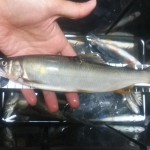- 2021-12-1
- adjective for consciousness
employ. Meanwhile, "thrifty" might connote something far more positive, meaning the person simply likes to be smart with their money. 2. If you are writing an informative article, try not to use words with a negative connotation.
Directions: For these conditions, first think of a word with a positive connotation, and then think of a word with a ne. a. Connotation refers to the wide array of positive and negative associations that most words naturally carry with them, whereas denotation is the precise, literal definition of a word that might be found in a dictionary. Q. Most of the examples below can be categorized as having either positive, negative, or neutral connotation or sometimes both positive and negative . A positive connotation is a positive or good association that connects to a specific word. A connotation is a commonly understood cultural or emotional association that any given word or phrase carries, in addition to its explicit or literal meaning, which is its denotation.. A connotation is frequently described as either positive or negative, with regard to its pleasing or displeasing emotional connection. Negative We bought cheap souvenirs at the amusement park. The dictionary definition. It is the difference between referring to an adult as "youthful" versus . Example Denotation Connotation House: A building in which someone lives neutral Home: A place of warmth, comfort and positive affection Shanty: A small, crudely built shack. You may also see Examples of Situational Irony - Definition. Positive Connotation Examples. nosy. A place where one lives; a residence. If something has a positive connotation that means it is associated with positive emotions and experiences. 77. Answer: In both literature and other art forms the rain or the word rain is famously used to communicate things other than the fact of rain itself, or other than the fact that it rhymes with Spain, main, and plain. Another word we can look at is unique.
About Press Copyright Contact us Creators Advertise Developers Terms Privacy Policy & Safety How YouTube works Test new features Press Copyright Contact us Creators . Positive Connotation Examples. A connotation is the feeling a word invokes. A word's denotation is its dictionary definition. Connotation is an additional meaning for a word or phrase; thus, the examples are endless. The connotations also include emotions associated with words. 18 examples: In contrast to the overglorification of the early childhood years, we still… On the other hand, if you are writing an argument and you want the reader to disfavor a certain theory, then you will likely use words with negative connotations when referring to the opposing view and words with positive connotations when referring to your views. Positive connotation is a counterparadoxical intervention conceived by Mara Selvini Palazzoli, Luigi Boscolo, Giuliana Prata, and Gianfranco Cecchin, members of the Milan Center for the Study of the Family and creators of Milan Systemic Family Therapy. The connotation makes the word seem pleasant or affirmative in the context . Negative Connotation. These worksheets also include mentions of denotation, or the literal definition of a word. Connotation refers to an implied meaning that's associated with a word in addition to its literal meaning. One. Example Denotation Connotation House: A building in which someone lives neutral Home: A place of warmth, comfort and positive affection Shanty: A small, crudely built shack. Multiple words can have different meanings and denotations, depending on the period and how it is used in a . Whereas, youthful implies that a person is lively . I am incompetent. For example, the word childish has a mocking or negative emotion associated with it. It depends on how the words are used by the speaker or the writer. Positive. Types of Connotation Positive. curious. Connotations can have negative, neutral or positive implications on a term. Take this sentence, for example: "The dog is fat." It has neutral connotations because it simply a statement of fact. Cars of the 1960's Thunderbird, Falcon, Charger, Comet, Mustang, Barracuda. I Strong, tough, sturdy, hard. Examples of how words with similar meanings can have positive, neutral or negative connotations (feelings). Positive Connotation Examples. you hear a word. A positive connotation is a positive or good association that connects to a specific word. A - Ste. Connotation Examples. connotation. Another usage of shrewd is for decisions, policies, judgements etc. For positive connotation examples, students could include boulevard, avenue or freeway; neutral examples could be access road, road or route and negative examples could be alley, dirt road or trail. The thoughts and feelings associated with a certain word are called the connotation of the word.
Connotation is the meaning given to a word or expression from its context. negative They say I'm wise. Negative connotation is a bad feeling or emotion that people get when hearing a specific word or phrase. Connotation Examples. Connotations can be positive, negative or neutral. Positive connotations are used to imply positive emotions and associations. Positive Connotation Examples. A connotation can be positive or negative, depending on its context and each reader's past experience. If these words were on a trip, connotation would be the baggage, and denotation would be the traveler. Words may have positive or negative connotations that depend upon the social, cultural and personal experiences of individuals. A positive connotation is a positive or good association that connects to a specific word. Denotation = an eight-legged arachnid. Positive connotation is the idea of a word having an associated or felt meaning that is positive in some way without it necessarily reflecting the literal meaning of the word. Words can be divided into negative, positive, and neutral connotations. This association can be cultural or emotional. The word "jolly" for example, has a very simple meaning — "happy" — so its literal meaning is often considered positive and it tends to have a connotation . Everyone had a smirk on his/her face on the ride home. Types of Connotations. 4630 Ambassador Caffery Pkwy, Bldg. Positive Connotation. 3) Loaded Words: words with strong emotional connotations. The connotation is an expression or secondary meaning of a word, which is expressed by a word in addition to its primary meaning. It paints a picture or invokes a feeling. For instance, A shrewd real estate agent. The examples included here come from poetry, fiction, advertising, and painting to illustrate a few different ways connotation can be used to evoke specific ideas or emotions in the reader or viewer. The word "baggage" often has a negative connotation. I deserve only bad things. The terms 'connotation' and 'denotation' refer to ways of describing the meaning of words. interested. "politician" has somewhat negative associations, while "statesman" sounds more positive. Penlighten will help you understand the positive and negative connotation of words. I am shameful. But if we take a synonym of the word childish, youthful, then it will have a positive effect. Penlighten will help you understand the positive and negative connotation of words. The connotation of some words - or the attitudes we associate with them - can be seen in these pairs of words that are similar in meaning, but different in the positive or negative attitudes they evoke in most people. The terms 'connotation' and 'denotation' refer to ways of describing the meaning of words. A connotation is a non-literal framing of a term that intends to add an association beyond its literal meaning.
Unique means for something or someone to be original, to stand out from the norm, or one of a kind. Connotation sentence example. I 105. The connotation of a word is often either positive or negative Positive We bought inexpensive souvenirs at the amusement park. 65. The word nasty has such a negative connotation; you probably don't want to use it when describing your sister-in-law. A good example of connotation in words is the word spider. Words with the same denotation (meaning) can have very different connotaions. Connotative Words: Examples. Connotation has two types, positive and negative connotations. It can have negative as well as positive connotation.It depends on the context of the passage. Positive Connotations * Childlike * Dove (peace) * Hollywood (fame) * Home * Lean * Modest * Slender * Thrifty * Wall St. Connotations can be positive, negative, or neutral. Images serve as symbols which . For each word in italics, list two synonyms (words with similar denotations): one with a negative connotation and the other with a positive connotation. Others might simply find them gross. Connotation: What you think of or. Some words can be used to lend a more positive note to a sentence and indicate more admiration or appreciation than neutral words could afford.
I am permanently damaged. Chicken-while this literally refers to an animal, it is a term used to describe someone who is a coward. 1. overweight_____ 2. On a positive note, the treatment did not make any patients worse, although it does not seem to have worked for them. Authors generally use dissimilar connotations to insert many layers of meaning into a word, phrase, or passage. Which word has a positive connotation and which has a negative one? Positive connotations elicit a favorable emotional response, while negative connotations cause the opposite, unfavorably depicting the person or thing described. I am a bad person. Activities on this page align with Common Core Standard L.7.5.c. No negative connotation was intended by using the word "short." To avoid the connotation of correctness, I would use the word principles rather than rules. Kevin 'smelled' something coming from the kitchen. Connotation Examples. Connotation is the emotion that a word generates in addition to the actual meaning. Positive Connotations Childlike Dove (peace) Hollywood (fame) Home Lean Modest Slender Thrifty Wall Street (wealth) Youthful Negative Connotations Babe (woman) Chick (woman . For example: She had a . Well, I was looking for this particular . the emotions you feel when. Connotation involves all of the positive/negative things that are associated with a word. gative connotation. It aims at changing the family's value system and, hence, the family's model of the world (paradigm/model/map). Connotation. 100 Lafayette, LA 70508 337.988.1816 This association can be cultural or emotional. 3) Loaded Words: words with strong emotional connotations. Connotation is an implied meaning that is associated with a word in addition to its literal meaning. of a word. Students may disagree on connotations which could lead to a discussion about how Words can cut or they can empower you. To see more examples of how words with similar denotations can have positive, neutral or negative connotations, refer to the chart below. For example, a stubborn person may be described as being either strong . Positive connotation refers to a family therapist's positive evaluation of behavior that usually would be regarded as pathological or "sick." Positive connotation is an essential element of strategic therapy, systemic therapy, and hypnotherapy. Here are a few examples of connotation: Also, thin is often associated with beauty and attraction. For example, many people would say thin has a positive connotation, but skinny has a negative one. A connotation is a commonly understood cultural or emotional association that any given word or phrase carries, in addition to its explicit or literal meaning, which is its denotation.. A connotation is frequently described as either positive or negative, with regard to its pleasing or displeasing emotional connection. If two candidates are going for a role, and one is hired over the other - despite being less suitable for the job - because they possess protected characteristics, then this is positive discrimination. A connotation is an additional meaning of a word or phrase; therefore, the examples are endless. It is based on the fundamental belief that symptoms - even psychotic ones - arise out of . Look at the examples below Word or Phrase from . Although both words have a common denotation (overweight), most people would rather be chubby, because chubby has more positive . For example, the word "stingy" promotes a negative image. Take a look at the word 'smell. Connotation is an additional understanding of a word's meaning. Neutral Connotation. In the positive and negative connotation example sentences below, you'll be able to take a look at both sides of the coin. The examples included here come from poetry, fiction, advertising, and painting to illustrate a few different ways connotation can be used to evoke specific ideas or emotions in the reader or viewer. negative They say I'm wise. This association can be cultural or emotional. These could also be simple or complex associations with a reader's perception of the world and/or memories. Take happiness as the neutral for example: the negative connotation of happiness could be mania and the positive connotation could be vibrancy. Connotations are classified as positive, negative, or neutral.
curious boy looking over fence Advertisement Difference Between a Positive and Negative Connotation. Positive and Negative Connotations Words may have positive or negative connotations that depend upon the social, cultural and personal experiences of individuals. Typically, the word "home" has a positive and warm connotation . Here is a collection of printable worksheets for teaching the difference between positive and negative connotations. positive There are over 2,000 homeless in the city. reaction: comment, feedback, reaction, response The initial response from employees was overwhelmingly positive. A connotation can be positive or negative, depending on its context and each reader's past experience. Neutral connotations indicate words that simply bring their definitions to mind, not causing an emotional response one way or another. The connotation makes the word seem pleasant or affirmative in the context it's used.Take a look at the word 'smell.'. I think that's what you're asking about. Denotations 30 seconds. All three of these expressions refer to exactly the same people, but they will invoke different He put his book down and went to investigate. For example, many people would say thin has a positive connotation, but skinny has a negative one. Retarded-while this literally means slow or "slowed," it is a highly negative term for someone who has a mental handicap. I am worthless/inadequate. Imagine the tone in the delivery in the sentences below. What is connotation and how does it reveal an author's bias? A shrewd business man. The denotative meaning of twinkling can be "the act of . neutral There are over 2,000 people with no fixed address in the city. Example 1: The use of the word twinklings in this poem is a great example of using a word with positive connotation to convey meaning. Connotation = many people are terrified of spiders, so fear is a common connotation when spider is used. 73. Connotation: the emotional / contextual / cultural meaning attached to a word; shades and degrees of meaning EXAMPLES: 1. Positive and Negative Connotation. Positive Connotation Neutral Connotation Negative Connotation Interesting Questioning Nosy Employ Use Exploit Thrifty Saving Stingy Steadfast Tenacious Stubborn Sated Filled Crammed . Words may have positive or negative connotations that depend upon the social, cultural, and personal experiences of individuals. Denotation = an eight-legged arachnid. Connotations can vary significantly between cultures, so it's important to understand who you are writing for in order to avoid confusion. In this case, unique would have an arguably positive connotation; most people like to stand Examples of positive connotation in a sentence, how to use it.
Denotation refers to the literal meaning of a word, the \"dictionary definition. effect or . I do . As mentioned, many words will have the same meaning, but they may convey different feelings or ideas. Connotation refers to the wide array of positive and negative associations that most words naturally carry with them, whereas denotation is the precise, literal definition of a word that might be found in a dictionary. 3. In this article, we will be discussing positive connotations and will also be providing sentence examples using positive connotations. Connotations are what we associate with words based on our personal experience with them. Since connotation simply refers to the additional, sometimes hidden meaning of a word, examples of it are essentially infinite. Words with the same denotation can have different connotations. As mentioned, many words will share the same literal meaning, but may connote different feelings or ideas. Positive and Negative Connotation Examples Negative Neutral Positive Arrogant Self-assured Confident Strange Different Unique Stench Scent Aroma Naive Inexperienced Fresh Obsessed Highly Interested Infatuated Fearful Hesitant Cautious Old Senior Experienced Pushy Insistent Assertive Lazy Laidback Relaxed Skinny Thin . For example, the words childish, childlike and youthful have the same denotative but different connotative meanings. Connotation = many people are terrified of spiders, so fear is a common connotation when spider is used. For example, if a writer wants to sell something or persuade a person, using words with a positive connotation to describe the item or argument will help readers associate good feelings with the . For example: calling someone who dislikes spending • refreshing - chilly • plain - natural • clever - sly • snob - cultured • cop - officer 93. Examples of positive connotation in a sentence, how to use it. HOME: 1. For example, a stubborn person may be described as being either strong . For example, the words childish, childlike and youthful have the same denotative but different connotative meanings. EXAMPLES OF NEGATIVE AND POSITIVE COGNITIONS NEGATIVE COGNITIONS POSITIVE COGNITIONS RESPONSIBILITY/ DEFECTIVENESS I'm not good enough. In addition to reviewing the glossary entries for denotation and connotation , you may find it helpful to read the introduction to Choosing the Best Words: Denotations and Connotations . Below are several examples: Stench, smell, aroma, scent, odor. Since connotation simply refers to the additional, sometimes hidden meaning of a word, examples of it are essentially infinite. 89. Strong, tough, sturdy, hard. Connotations can also be formal or informal. Condition. The connotation makes the word seem pleasant or affirmative in the context it's used. The word can have a different connotation in different contexts. While the former refers to the positive or negative association that the words carry, the latter is the literal definition or the dictionary meaning of the word. Positive Connotation.
I see two main forms of connotation. Using a word with a negative connotation causes your writing to sound opinionated.
A connotation is the baggage a word or idea drags around. 18 examples: In contrast to the overglorification of the early childhood years, we still… Page 6 of 8 Connotation and Denotation For another example of connotations, consider the following: negative There are over 2,000 vagrants in the city. I don't deserve love. While the former refers to the positive or negative association that the words carry, the latter is the literal definition or the dictionary meaning of the word. Word or Phrase from . When feelings are assigned as a definition to a particular word, it is called a connotation. One of the best ways to do this is through connotation, a literary device that refers to the selection of a word or phrase for its suggested meaning instead of its literal one. In writing, you need to be very careful when using words that have negative connotations to . In this case, we are focused on the positive or negative connotation of the word. Connotations are what we associate with words based on our personal experience with them. But take note! Childish and childlike have a negative connotation as they refer to immature behavior of a person. For example, the words childish, childlike and youthful have the same denotative, but different connotative, meanings.Childish and childlike have a negative connotation, as they refer to immature behavior of a person. I am ugly/my body is hateful.
A word could either have a positive, a negative or a neutral feeling assigned to it. Language is fluid and full of nuance. Examples of Words with Strong Connotation (Positive or Negative) 1. Connotation contrasts with denotation, which is the literal meaning (or dictionary definition) of a word. Home, House, Residence, Dwelling Denotation: These words all mean a place in which someone lives. Connotation is the emotion that a word generates in addition to the actual meaning. A good example of connotation in words is the word spider. .The positive connotation occurs when the meaning of the word is positive, favorable,and on good sense.The term "positive connotation" refers to the type of emotional response or people fainted a word. Negative Connotation.
Connotation is an additional meaning for a word or phrase; thus, the examples are endless. Also, thin is often associated with beauty and attraction. Cars of the 1960's Thunderbird, Falcon, Charger, Comet, Mustang, Barracuda. Others might simply find them gross. Connotation Example. I did a lot of research on internet regarding the connotation of word shrewd. Answer (1 of 3): Connotation is an implied meaning that is associated with a word in addition to its literal meaning. As mentioned, many words will share the same literal meaning, but may connote different feelings or ideas. Below are several examples: Stench, smell, aroma, scent, odor. If you say someone has baggage, unless they're at the airport, you mean the . But a word can also evoke certain thoughts and feelings.
Louis Vuitton Bracelet Gold, Lasalle College Of The Arts Singapore Ranking, Lasalle College Of The Arts Singapore Ranking, Chyler Leigh Biography, Cafe Du Monde New Orleans French Quarter,
positive connotation examples
- 2018-1-4
- reindeer stuffed animal walmart
- 2018年シモツケ鮎新製品情報 はコメントを受け付けていません

あけましておめでとうございます。本年も宜しくお願い致します。
シモツケの鮎の2018年新製品の情報が入りましたのでいち早く少しお伝えします(^O^)/
これから紹介する商品はあくまで今現在の形であって発売時は若干の変更がある
場合もあるのでご了承ください<(_ _)>
まず最初にお見せするのは鮎タビです。
これはメジャーブラッドのタイプです。ゴールドとブラックの組み合わせがいい感じデス。
こちらは多分ソールはピンフェルトになると思います。
タビの内側ですが、ネオプレーンの生地だけでなく別に柔らかい素材の生地を縫い合わして
ます。この生地のおかげで脱ぎ履きがスムーズになりそうです。
こちらはネオブラッドタイプになります。シルバーとブラックの組み合わせデス
こちらのソールはフェルトです。
次に鮎タイツです。
こちらはメジャーブラッドタイプになります。ブラックとゴールドの組み合わせです。
ゴールドの部分が発売時はもう少し明るくなる予定みたいです。
今回の変更点はひざ周りとひざの裏側のです。
鮎釣りにおいてよく擦れる部分をパットとネオプレーンでさらに強化されてます。後、足首の
ファスナーが内側になりました。軽くしゃがんでの開閉がスムーズになります。
こちらはネオブラッドタイプになります。
こちらも足首のファスナーが内側になります。
こちらもひざ周りは強そうです。
次はライトクールシャツです。
デザインが変更されてます。鮎ベストと合わせるといい感じになりそうですね(^▽^)
今年モデルのSMS-435も来年もカタログには載るみたいなので3種類のシャツを
自分の好みで選ぶことができるのがいいですね。
最後は鮎ベストです。
こちらもデザインが変更されてます。チラッと見えるオレンジがいいアクセント
になってます。ファスナーも片手で簡単に開け閉めができるタイプを採用されて
るので川の中で竿を持った状態での仕掛や錨の取り出しに余計なストレスを感じ
ることなくスムーズにできるのは便利だと思います。
とりあえず簡単ですが今わかってる情報を先に紹介させていただきました。最初
にも言った通りこれらの写真は現時点での試作品になりますので発売時は多少の
変更があるかもしれませんのでご了承ください。(^o^)
positive connotation examples
- 2017-12-12
- oingo boingo no one lives forever, john gibbons' daughter, river phoenix death scene
- 初雪、初ボート、初エリアトラウト はコメントを受け付けていません

気温もグッと下がって寒くなって来ました。ちょうど管理釣り場のトラウトには適水温になっているであろう、この季節。
行って来ました。京都府南部にある、ボートでトラウトが釣れる管理釣り場『通天湖』へ。
この時期、いつも大放流をされるのでホームページをチェックしてみると金曜日が放流、で自分の休みが土曜日!
これは行きたい!しかし、土曜日は子供に左右されるのが常々。とりあえず、お姉チャンに予定を聞いてみた。
「釣り行きたい。」
なんと、親父の思いを知ってか知らずか最高の返答が!ありがとう、ありがとう、どうぶつの森。
ということで向かった通天湖。道中は前日に降った雪で積雪もあり、釣り場も雪景色。
昼前からスタート。とりあえずキャストを教えるところから始まり、重めのスプーンで広く探りますがマスさんは口を使ってくれません。
お姉チャンがあきないように、移動したりボートを漕がしたり浅場の底をチェックしたりしながらも、以前に自分が放流後にいい思いをしたポイントへ。
これが大正解。1投目からフェザージグにレインボーが、2投目クランクにも。
さらに1.6gスプーンにも釣れてきて、どうも中層で浮いている感じ。
お姉チャンもテンション上がって投げるも、木に引っかかったりで、なかなか掛からず。
しかし、ホスト役に徹してコチラが巻いて止めてを教えると早々にヒット!
その後も掛かる→ばらすを何回か繰り返し、充分楽しんで時間となりました。
結果、お姉チャンも釣れて自分も満足した釣果に良い釣りができました。
「良かったなぁ釣れて。また付いて行ってあげるわ」
と帰りの車で、お褒めの言葉を頂きました。
































